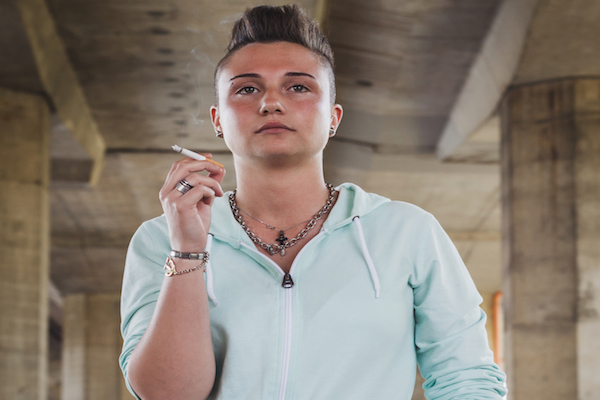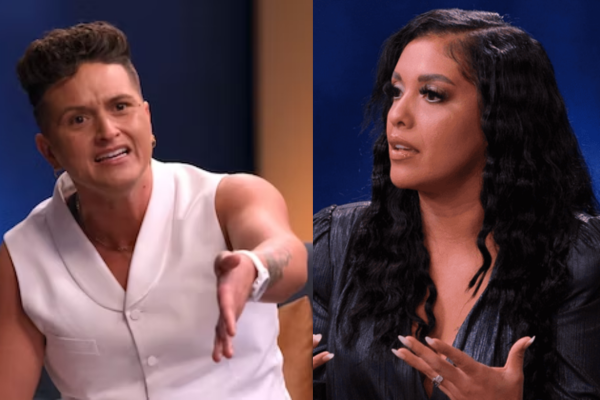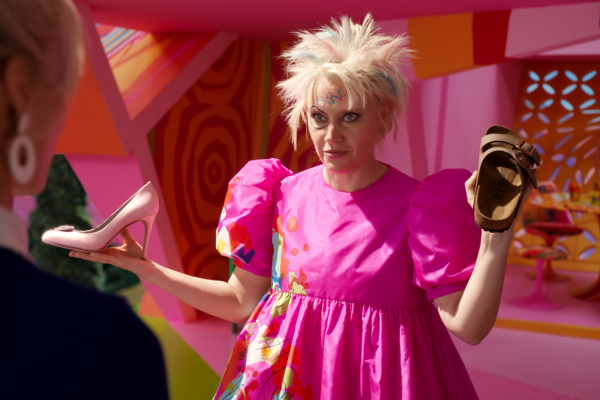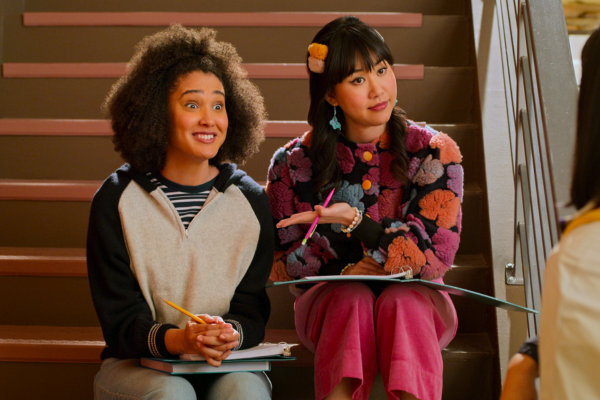
The Saints We Call Upon: Staceyann Chin’s MotherStruck
September 23, 2016
Dating Advice for Queer Women from Queer Women
September 27, 2016This is a love story, or rather, a story about love.
My presentation, my demeanor is typically femme of center. You know – feminine. Femme or “FEMME”. Femme-ish. Femmy.
I’m the kind of femme who walks around the house in high heels, black lace, and a tool belt. I’ll cook you dinner, teach you how to use power tools to build that new cat tower, and quote poetry before it’s all over. The next time you see me, I’ll be snuggling a baby, arranging a dozen gladiolus and trying to imitate Shakira in lipstick and vintage black wingtips. I will give a presentation to the board, ask you on a date, and sometimes, secretly, I really like it when I call you Big Poppa. You know – femme.
I was recently approached by an attractive queer, masculine of center person while doing work in a coffee shop near my office. Despite being engrossed in my work, I chatted with them briefly before ending the conversation. Then, this person asked me for a date, and while I was not interested in their energy, I like when other people take initiative. I thanked them and politely declined. They persisted and I declined again – this time less politely. They then intimidatingly stood over me, as they aggressively verbally attacked me, devaluing everything about me from my physical appearance to my worth as a human, before storming away.
A few days later, I bumped into this person again while on my way to work. Before I’d even had the chance to eat breakfast, I was called a bitch and reminded that to them, and to most of society, my value as a feminine-presenting person was directly correlated to my ability and/or willingness to uphold the masculine ego as defined within a patriarchal system.
This isn’t the first time that something like this has happened to me within the queer community.
This perverted form of masculinity—which depends on a superiority to feminine people—is something to which I’ve grown tragically accustom. I’m no longer surprised when it rears its ugly head from cisgendered men (yeah, catcallers, I’m talking about you). But, when fellow dykes/queers demonstrate the seriously misplaced notion that they are entitled to my time or my attention or my body just because of my expression of femininity, it doesn’t just make me angry, it makes me sad.
Toxic masculinity indicates that the right way to be masculine is to be aggressive, dominant, unemotional and violent, and disgusted by and violent towards femininity. These behaviors often stem from the harmful internalizations of privilege and flawed definitions of what it means to be masculine or feminine based in a patriarchal system. So often, our own identities and interactions with the world are shaped by emulating the things in our environments that line up with our own internal definitions of who and what we are. Women, queer, and trans folks are often at the receiving end of toxic masculinity. When I interact with queer, masculine of center people who subjugate or diminish feminine-presenting people, I can’t help but take note of the tragic hypocrisy of the situation.
I love being queer. I love my chosen family and my queer community. I love how beautiful and diverse we are. I love our love. The beautiful thing about being queer is that we define and redefine who and what we are and how we love. We challenge the world around us and there is nowhere that I see this more than in the ways we play with gender and gender presentation. As a queer community, we have the opportunity to love one another, to love ourselves, and to hold each other and ourselves accountable. We have the opportunity to redefine masculinity in the same ways that we have redefined love.
That’s why it matters that we talk about and challenge toxic masculinity within the queer community.
It matters because toxic masculinity doesn’t just harm feminine folks or masculine folks or androgynous folks, queer folks or hetero folks – it harms us all.
It matters because Brock Turner walks free, because Tiarah Poyau was murdered for telling someone to stop grinding on her, because I can’t count on my fingers and toes the number of women and queer folks I know and love who have been assaulted because toxic masculinity isn’t just annoying or scary – toxic masculinity kills.
It matters because active consent matters. My “no” doesn’t mean try harder, demean me, or try to take what you want from me anyway. Even if I’m playing hard to get, I’m still going to give you an active “yes” if I want to engage. And if you get a “no,” accept it with grace and move on.
It matters because my time, my attention, and my body are mine. My decision to share them is a privilege earned. It is entirely possible to be sexy and sex positive and not want to have sex with you or at all.
It matters because when I originally vented about this to a few close self-identified queer femme friends, every single one had their own stories to share of targeted misogyny and toxic masculinity from other queers.
It matters because it is possible to be queer and masculine and oh so sexy without also incorporating or reproducing all the things that are wrong with traditional hetero masculinity – especially keeping in mind that traditional hetero masculinity is shaped and defined by a patriarchal system which exists based on the subjugation of women, trans people, queer people, and people of color.
It matters because I demand more from my community. I demand better. We deserve better.
It all starts by having tough conversations and redefining masculinity and femininity in the same ways that we redefined love – by making it really, really queer (whatever that means to you).






